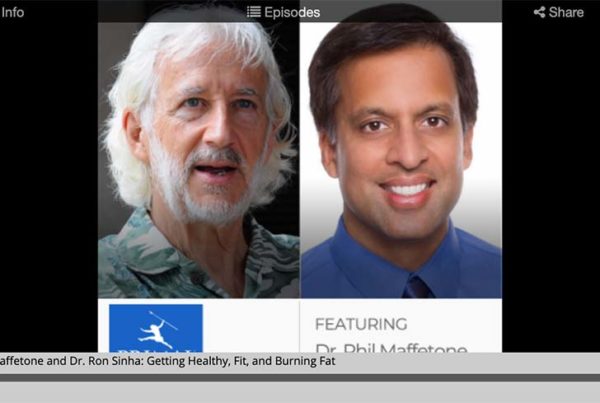
The grandfather of vitamin C may have changed his viewpoint given the contemporary scientific evidence about this nutrient.
His list of scientific achievements is seemingly endless, and includes a Nobel Prize in Chemistry.
Best known as one of the greatest scientists of all time, Dr. Linus Pauling was ranked as the 16th most important scientist in history. He was an unconventional thinker and researcher, even holistic in his approaches, often venturing into biochemistry, metabolism and brain function. He was one of the founders of the fields of quantum chemistry and molecular biology. Much of this was accomplished before age 30.
One thing the flamboyant Linus Pauling did not accomplish was finding a cure for the common cold and flu, something the pharmaceutical companies have not done either, despite pouring millions into research. But the perception that synthetic vitamin C in massive doses could accomplish this, instigated by Pauling, was enough to trigger the start of a worldwide dietary supplement craze, becoming a multi-billion-dollar industry, the primary beneficiary of which were the pharmaceutical companies that made the synthetic vitamins used in these products, as well as manufacturers and retailers. Vitamin C has always been the Cinderella product of the industry, the reason there have been hundreds of different kinds of chemical vitamin C products, almost all of which are essentially the same.
While Pauling made many scientific discoveries, vitamin C was not one of them. Some think his middle initial of “C” refers to the vitamin, but it’s really his middle name, Carl. (In 1928, during Pauling’s early scientific career, Hungarian-American physiologist Albert Szent-Györgyi isolated a substance from adrenal glands that he called ‘hexuronic acid,’ and later called ascorbic acid or vitamin C, the third vitamin to be discovered, for which he was awarded a Nobel Prize.)
Today the U.S. Food and Drug Administration recognizes ascorbic acid as vitamin C. However, vitamin C as it occurs naturally in food is a balanced complex with several other components. Most supplements contain only isolated high-dose synthetic ascorbic acid.
After World War II, influenced by wife Ava, Pauling became a peace activist, joining the Emergency Committee of Atomic Scientists, chaired by colleague Albert Einstein, whose mission was to warn the public of the dangers of nuclear weapons. Enlisting support from hundreds of fellow scientists, Pauling tirelessly promoted the anti-war stance, forced governments to admit that nuclear explosions could damage human genes, and was an important part of the rapidly growing peace movement of the 1960s.
Pauling was awarded the Nobel Peace Prize in 1962, the only person to be awarded two unshared Nobel Prizes.
Prior to the 1960s, Pauling had positive personal experiences with taking dietary supplements, not common items of the day. He theorized extra vitamins might have important healthy biochemical effects unrelated to their prevention of deficiency diseases, and began touting the suspected benefits of synthetic vitamin C in very high doses. Because of his popularity, this received a lot of attention. Along with sales of a book on the subject, Pauling would be a major trigger for the growth of the dietary supplement industry.
A significant amount of research has been performed on synthetic vitamin C, along with foods containing this necessary nutrient. Overall, the studies show little to no benefits of synthetic C while the value of vitamin C in foods has been clearly shown to be vital for optimal health.
We know there may be some effect of taking certain doses of synthetic vitamin C, especially in the gastrointestinal tract. Stress can reduce the stomach’s production of hydrochloric acid, a primary factor for good digestion and absorption of other nutrients. Synthetic C is called ascorbic acid, and it can help acidify parts of the intestinal tract improving function in some people. For example, its acidic quality can improve iron absorption.
Currently, most synthetic vitamin C, like other chemicals used for dietary supplements and medications, are imported from China, where 80 percent of the world’s supply is manufactured.
Pauling coined the word “orthomolecular,” referring to vitamin C’s use in psychiatry (in treating the brain). In 1973 he founded the Institute of Orthomolecular Medicine, which was soon renamed the Linus Pauling Institute of Science and Medicine. He began studying the use of very high doses of synthetic vitamin C, among other nutrients, theorizing its value in preventing the common cold, and treating heart disease, cancer, brain disorders and other conditions.
Overall, the scientific community did not support Pauling’s ideas about high-dose vitamin C, and he was often severely criticized by colleagues. While studies already showed that people whose diets were rich in foods high in vitamin C — typically 200 mg per day — have a lower risk of heart disease, certain cancers and other diseases, clinical trials testing isolated doses of synthetic C have mostly failed to find any protective benefit against disease.
In a 2013 article in The Atlantic, pediatrician Paul Offit wrote that although Pauling was “so spectacularly right” that he won two Nobel Prizes, the scientist’s late-career assertions about the benefits of dietary supplements were “so spectacularly wrong that he was arguably the world’s greatest quack.”
However, it’s possible that were Pauling alive today, with new biochemical discoveries about how vitamin C works in the body, he would change his mind about high-dose use. For example, rate-limiting steps in metabolism now show that the body can only utilize less than 500 mg of a vitamin C supplement. This corresponds to the intestines’ absorption capabilities, and to studies showing levels above this amount can cause damage. In fact, a dose of 200 mg or less of ascorbic acid is 100 percent absorbed from the intestines with higher doses rapidly being less bioavailable. This also corresponds well to the amount of this natural nutrient contained in a vitamin C-rich meal that includes fresh fruits and vegetables.
As long ago as 1974, Pauling was quoted as saying that “the first 250 mg is more important than any later 250 mg. The first 250 mg leads you up to the level where the blood is saturated.”
Today’s Linus Pauling Institute recommends 400 mg of vitamin C for generally healthy adults based on the currently available epidemiological, biochemical and clinical evidence.
But rather than update their own personal outlook, many consumers seem strangely stuck in the past, on the earlier opinions of Linus C. Pauling rather than newly discovered information which Pauling himself would no doubt have responded to scientifically.
Another strange trend is the booming sales of synthetic vitamin C, especially by natural foods consumers who tend to avoid artificial chemicals. Despite studies showing the dangers of high-dose synthetic vitamin C, many people continue taking high doses daily, with many millions of others taking more than 500 mg each day. This chemical is also part of many other popular formulations, including multivitamins and food fortification.
Pauling’s radical shift in thought process, from one of highly intellectually calculating scientific reasoning to his mere speculation about vitamin C, made most of his colleagues see him as rather strange too. However, that same scientific thought process was apparently how his amazing mind worked, with unconventional being a word sometimes used to describe him.








